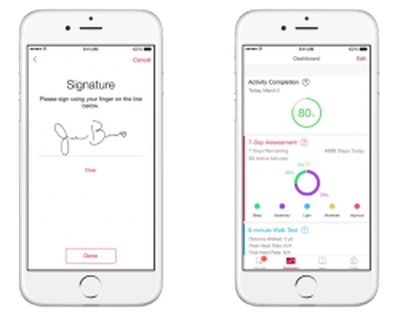 Apple today announced that researchers from Duke University, Johns Hopkins and Oregon Health & Science University are launching three new ResearchKit studies on autism, epilepsy and melanoma.
Apple today announced that researchers from Duke University, Johns Hopkins and Oregon Health & Science University are launching three new ResearchKit studies on autism, epilepsy and melanoma.
“We’re honored to work with world-class medical institutions and provide them with tools to better understand diseases and ultimately help people lead healthier lives,” said Jeff Williams, Apple’s senior vice president of Operations. “In just six months, ResearchKit apps studying everything from asthma and diabetes to Parkinson’s disease, are already providing insights to scientists around the world and more than 100,000 participants are choosing to contribute their data to advance science and medical research.”
New ResearchKit Studies
- Autism & Beyond: Duke University and Duke Medicine, in partnership with Peking University in China and other international institutions, are researching whether the front-facing iPhone camera can be used to detect signs of developmental issues at a much younger age. The study uses emotion detection algorithms to measure a child’s reaction to videos shown on iPhone.
- EpiWatch: The EpiWatch app developed by Johns Hopkins will test whether the Apple Watch's sensors can be used to detect the onset and duration of seizures. The app will feature a custom Apple Watch complication that provides patients with one-touch access to record accelerometer and heart rate sensor data, and will also keep a log of all seizures and track medication adherence.
- Melanoma: Oregon Health & Science University is studying whether digital images taken on an iPhone can be used to learn about mole growth and melanoma risks. Participants can document mole changes and share them directly with health professionals, and researchers will be able to capture these images to help create detection algorithms for future melanoma screening.
ResearchKit is an open source framework, launched in early 2014, that enables developers to create their own iPhone apps for research purposes, with studies available for asthma, breast cancer, cardiovascular disease, diabetes, Parkinson’s disease and more. More than 50 developers and researchers have already contributed new research modules to the open source framework.
In just six months, more than 50 researchers have contributed active tasks to support new methods of research, including tasks to study tone audiometry for hearing loss; the ability to measure reaction time through delivery of a known stimulus to a known response; a timed walk test; PSAT to assess the speed of information processing and working memory, and the mathematical puzzle Tower of Hanoi often used for cognition studies.
ResearchKit apps can access data from the Health app with permission, and use iPhone sensors such as the accelerometer, gyroscope, microphone and GPS to track a user's activity levels, motor impairments, memory and more. The research apps, available on the App Store in the U.S. and select other countries, are compatible with the iPhone 5 or later and fifth-generation iPod touch or later.
ResearchKit studies generally have higher signup rates than traditional medical studies, with more than 100,000 participants contributing their data to the iPhone-based platform since its wide launch in April 2014.



















